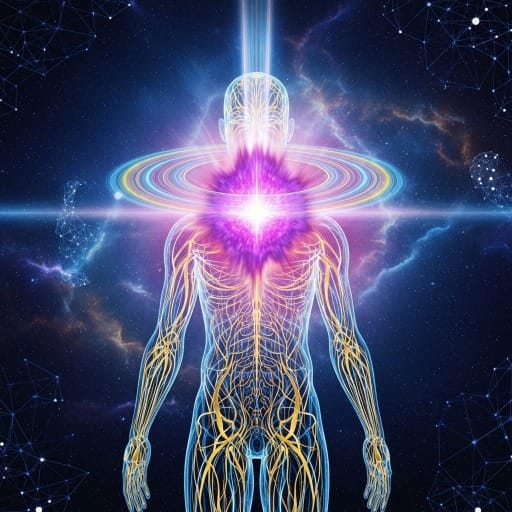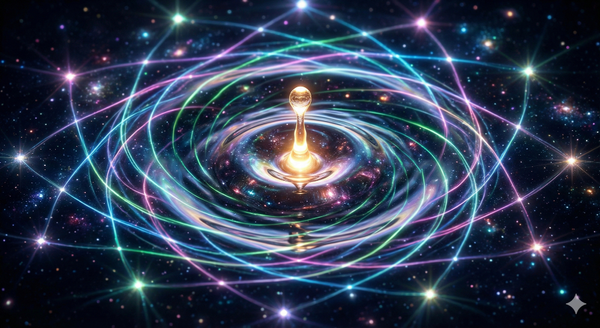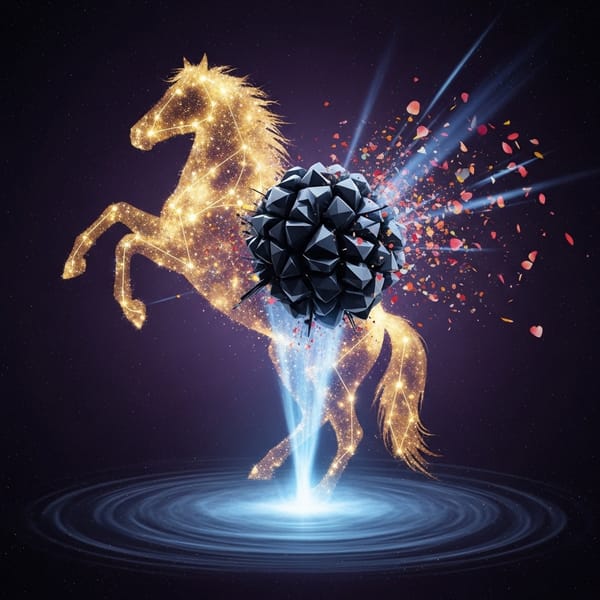Happiness is the absence of striving for happiness.
Drawing on Chuang Tzu's wisdom, this guide explores why happiness lies in the absence of striving. Uncover ancient Taoist secrets like Wu Wei (effortless action) to let go of the chase, release control, and discover lasting contentment by flowing with the natural rhythms of life.
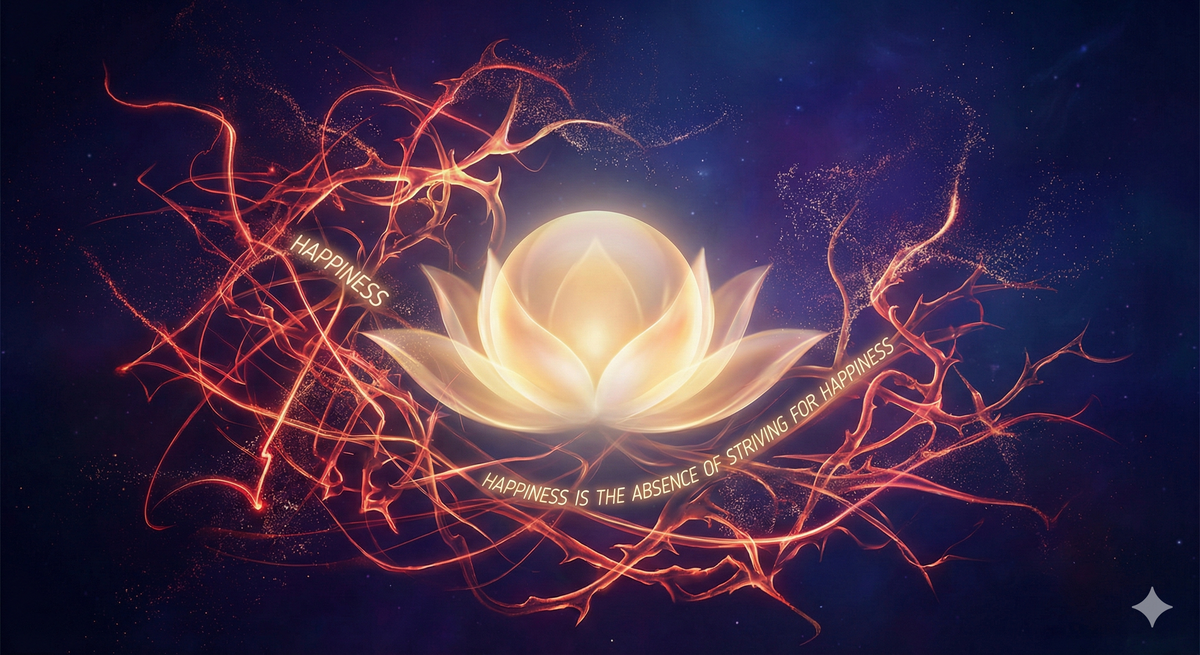
Key Takeaways
- Chuang Tzu teaches that happiness comes from surrender rather than striving; this leads to a perceptual shift in how we experience reality.
- The Tao represents the natural flow of existence, and aligning with it fosters effortless action, known as Wu Wei.
- Letting go of expectations and embracing change helps to cultivate inner peace and contentment, according to Chuang Tzu's philosophy.
- Participating in a series of mindful challenges can facilitate this journey from striving to allowing true happiness to unfold.
- Ultimately, Chuang Tzu's wisdom encourages a return to the peaceful self that exists beneath the noise of constant striving.
🔑Unlocking Happiness: 7 Ancient Secrets from Chuang Tzu

Have you ever chased happiness only to find it slipping further away? What if the key to true contentment lies not in striving but in surrendering? In this blog post, we'll delve into the profound wisdom of the ancient Chinese philosopher Chuang Tzu, who famously declared, "Happiness is the absence of striving for happiness."
We'll explore how this is more than a simple mindset shift; it's a perceptual shift—a change in how we experience reality itself. This is a holistic journey, engaging not just your thoughts, but the wisdom of your body and your very sense of self. It’s about moving from a state of doing to a state of profound, resonant being. By the end of this post, you'll have a deeper understanding of how to cultivate lasting happiness by letting go of the chase.
🔄The Paradox of Happiness: Chuang Tzu's Perspective
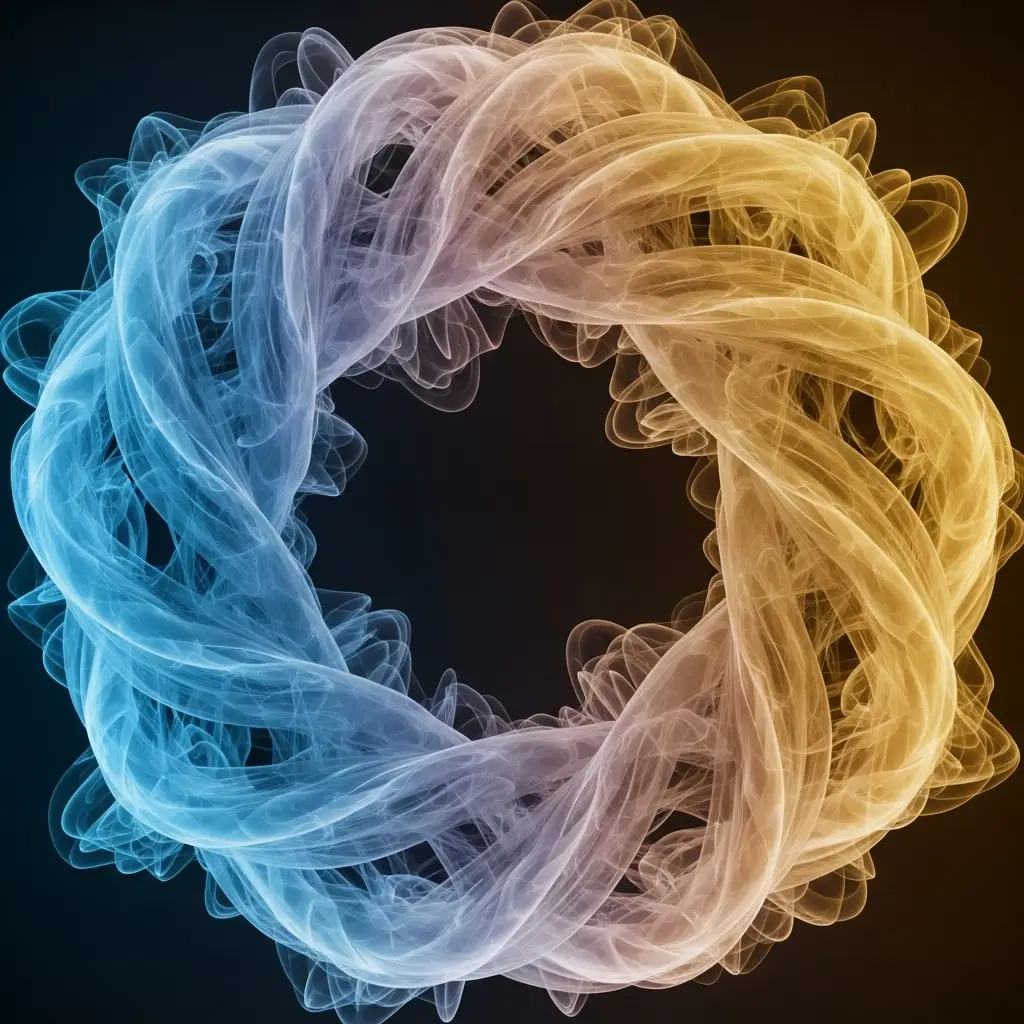
Chuang Tzu's statement seems paradoxical at first glance. How can we find happiness by not seeking it? The key lies in understanding that, in the Taoist view, happiness is not a destination but a state of being.
When we strive, we operate from what we might call the "small self"—the ego that feels separate from the world, full of needs and fears. This pursuit creates a sense of lack and disconnect from the present moment, leading to frustration. Holistically, this isn't just a mental state; it's a physical one. Think of the tension in your shoulders when you're forcing a project, or the shallow breathing that comes with anxiety. Striving is a state of disharmony that affects the whole person. In fact, this isn't just poetic philosophy; it's psychobiology. Striving often activates our sympathetic nervous system—our 'fight-or-flight' response—leading to chronic stress. Chuang Tzu’s paradox is an invitation to let your body exhale and activate the 'rest-and-digest' system, where authentic restoration and contentment can be found.
Chuang Tzu’s paradox invites us to relax this "small self" and discover the "Great Self"—the part of us that is already connected to the whole, peaceful and complete. The "Great Self" isn't something you build; it's what remains when the illusion of separation dissolves. It’s the recognition that you aren't just a drop in the ocean, but the entire ocean in a drop. The happiness Chuang Tzu speaks of is the quiet, humming peace of this fundamental connection.
☯️Understanding the Tao: The Way of Nature
Central to Chuang Tzu's philosophy is the concept of the Tao, often translated as "the Way." The Tao is the underlying principle of the universe. Still, it is also something much more mysterious—the unnamable, formless source from which all of existence arises and to which it returns. The opening of the classic text, the Tao Te Ching, says, "The Tao that can be spoken is not the eternal Tao." It is the silent, intelligent, and creative process of the cosmos itself.
Unlike a distant creator god, the Tao is not "out there." It is the intimate, intelligent grammar of the cosmos unfolding in every moment. It’s in the way a fern uncurls and the way a wound heals without your conscious command. The Tao isn't a concept to be grasped with the mind; it is a rhythm to be felt in the body.
The most profound and holistic insight here is that we are not separate from the Tao; we are the Tao in motion. Your breath is the wind of the Tao breathing through you. The beating of your heart is the rhythm of the Tao. Aligning with the Tao isn't about conforming to an external force, but about remembering and trusting the innate intelligence that is already animating you.
💧Wu Wei: The Art of Effortless Action
Wu wei, or "non-action," is a key concept in Taoism. It doesn't mean literal inaction but rather acting in harmony with the Tao, without forcing or striving. It’s when our actions arise from a place of deep intuition and alignment, not from the anxious planning of the ego. It’s like water flowing effortlessly around obstacles, adapting to its environment without losing its essential nature.
Think of the difference between forcing a key into a stubborn lock versus finding the sweet spot where it turns with ease. That's the difference between striving and wu wei. Striving feels like grinding gears; wu wei feels like a perfectly timed shift. It is the wisdom of knowing when to push, when to wait, and when to step aside entirely, letting the path clear on its own.
Wu wei gives rise to Ziran—spontaneity, or the quality of "things happening by themselves." Think of an artist or athlete "in the zone," where every move is perfect, fluid, and unthinking. That is Ziran in action. It’s a holistic state in which the mind’s intention, the body’s movement, and the spirit’s purpose are in perfect, frictionless harmony with the situation at hand.
🧘The Role of Mindfulness and Acceptance
Mindfulness and acceptance are crucial for cultivating happiness, according to Chuang Tzu. By paying attention to the present moment without judgment, we can appreciate the simple joys of life. Accepting our experiences, both good and bad, without resistance allows us to flow with the natural rhythms of life.
🌬️Letting Go of Expectations and Attachments
Our expectations and attachments often create suffering. By letting go of the need to control outcomes, we can experience greater freedom and peace. This doesn't mean becoming apathetic, but rather embracing openness and curiosity about how things will unfold.
🦋Flowing with Transformation and Change
Everything in life is constantly changing. Taoists refer to this as the process of Transformation (化, hua). A seed becomes a tree, which becomes a table, which eventually becomes dust. Nothing is fixed. By embracing this constant flow, we can learn to appreciate the present moment more fully.
This idea is beautifully captured in Chuang Tzu's most famous parable: the butterfly dream. He dreamt he was a butterfly, fluttering happily, unaware of being Chuang Tzu. When he woke up, he was himself again. But he was left with a question: "Was I Chuang Tzu dreaming I was a butterfly, or am I now a butterfly dreaming I am Chuang Tzu?"
This story isn't just a whimsical fancy; it's a profound metaphysical prompt to loosen our grip on our rigid sense of self. Chuang Tzu asks: What if our identity isn't a fixed thing but a fluid process? What if life isn't a solid narrative, but a waking dream? By holding our sense of 'I' more lightly, we suffer less when life's changes inevitably challenge it. We become free to participate in the grand, mysterious dance of transformation without clinging fearfully to any single form.
🌳The Wisdom of Uselessness
But what about our goals and our need to be productive? Chuang Tzu offers a radical perspective on "uselessness." He tells the story of a gnarled, crooked old tree that no carpenter would ever want. Because it was "useless" for timber, it was never cut down. It was allowed to grow ancient and vast, providing shade and sanctuary for generations.
In a world that demands constant productivity, Chuang Tzu reminds us that our actual value often lies beyond what is measurable or "useful." In our culture, "uselessness" is an insult. In Taoism, it is a sanctuary. It is in these "useless" moments—staring at the clouds, humming a tune for no reason, taking the long way home—that our spirit breathes. This is a radical metaphysical claim: your worth is not tied to your productivity. Your value is intrinsic to your being, just like the tree. By embracing uselessness, you are not being lazy; you are reclaiming your inherent right to exist simply, and in that space, true creativity and insight are born.
🕊️Cultivating Inner Peace and Contentment
Ultimately, Chuang Tzu's teachings point us toward a state of inner peace and contentment that arises from a deep connection with the Tao. This involves letting go of the ego's desires, trusting the spontaneous unfolding of life, and aligning ourselves with the natural flow of existence.
🏠Conclusion: From Chasing to Allowing

Chuang Tzu’s ancient wisdom offers a profound and liberating shift in perspective. True, lasting happiness isn't a prize to be won at the end of a frantic race, but a quiet wellspring that has been within you all along. The journey he maps out is not one of accumulating more, but of letting go; not of forcing outcomes, but of flowing with life's spontaneous unfolding.
By embracing concepts like wu wei, transformation, and even "uselessness," we move from being fighters against the current of life to skillful sailors who use its winds to guide us. This doesn't mean giving up on our goals; it means releasing our desperate attachment to them. It is in this space of non-striving that we dissolve the small, anxious self and create the conditions for contentment to arise naturally.
Ultimately, Chuang Tzu's path is a great homecoming. It's not about becoming someone new, but about un-becoming all the things you thought you had to be. It’s a return to the quiet, intelligent, and peaceful self that has been there all along, waiting beneath the noise of striving. This is not just a new thought pattern; it is a new, more graceful way of inhabiting your body and moving through the world.
🗺️Your Path to Effortless Contentment: A 7-Day Taoist Challenge
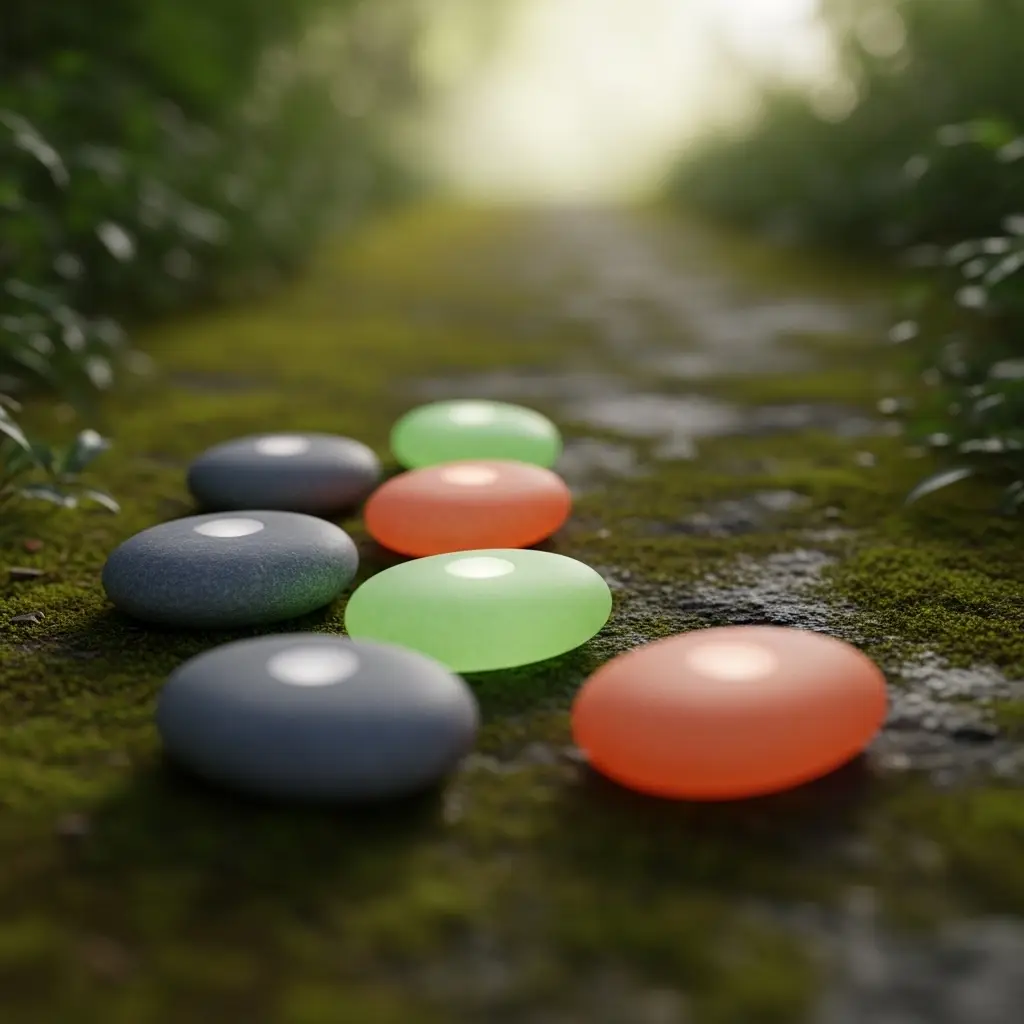
The journey from striving to flowing begins with a single step. We invite you to move beyond theory and put these principles into practice. This week, commit to this simple, actionable challenge. Grab a notebook to jot down your experiences and hold yourself accountable.
- Day 1: The Practice of Purposeful Uselessness
Choose one activity you usually do with a goal (a walk, listening to music, drawing) and do it for 15 minutes. Be like Chuang Tzu's gnarled tree: your only objective is to exist, without being useful for any external purpose. Feel the freedom in that.
In your notebook, reflect: How did it feel in my body to have no goal? Where did I notice a release of tension? - Day 2: The Wu Wei Challenge
Identify one task you've been forcing or stressing over (a difficult email, a household chore). Approach it today with a water mindset. How can you accomplish it with the least amount of resistance and mental friction? Flow around obstacles instead of trying to break through them.
In your notebook, reflect: Where did I feel resistance, and what did it feel like to flow around it instead of fighting it? - Day 3: The 5-Minute Stillness
Sit quietly for just five minutes. As you notice the world around you—sounds, temperature, your breath—also see the quiet space between the sounds. Try to feel the stillness from which all sensations arise. This is a glimpse of the Tao.
In your notebook, reflect: What is the quality of this stillness? Does it feel empty, or does it feel full and alive? - Day 4: The Art of Release
Consciously identify one expectation you have for today—how a conversation should go, how a project should turn out, or how someone should act. Verbally or in your journal, state your intention to release it. "I will let this unfold as it may." Notice the freedom that comes with it.
In your notebook, reflect: What physical sensation, however small, accompanied this act of letting go? - Day 5: The Transformation Observation
Spend a few minutes watching something that is naturally changing: clouds transforming across the sky, a candle burning down, or steam rising from a cup of tea. Reflect on the idea that everything, including your own thoughts and feelings, is in a constant, flowing state of transformation.
In your notebook, reflect: How does watching this outer transformation remind me of the constant, natural changes happening within me? - Day 6: The Nature Reset
Find a small piece of nature—a park, a tree, even a houseplant. Spend 10 minutes observing it without your phone or any other distractions. Connect with the simple, unforced existence of the natural world and its inherent alignment with the Tao.
In your notebook, reflect: What can this piece of nature teach me about existing without striving? - Day 7: The Gratitude of the Tao
End your week by writing down three simple things from your day that you can appreciate. Note any moments where you felt the natural flow of the Tao—perhaps an easy, flowing conversation (wu wei), the simple perfection of your morning coffee (Ziran), or a moment of peace watching a leaf fall (Transformation).
In your notebook, reflect: Looking back, how did these moments of flow and appreciation feel different in my body compared to moments of forcing or chasing?
You have nothing to lose and a world of peace to gain. Begin today, and discover the profound happiness that has been waiting for you all along—right here, in the quiet flow of the present moment.
“Our actions and decisions today will shape how we will live. And so it is.”
If my writing resonated with you—making you pause, smile, or think—consider buying me a coffee. Your support fuels my thought process and keeps this dream alive, word by word.🍵
📚Recommended Reads & Resources
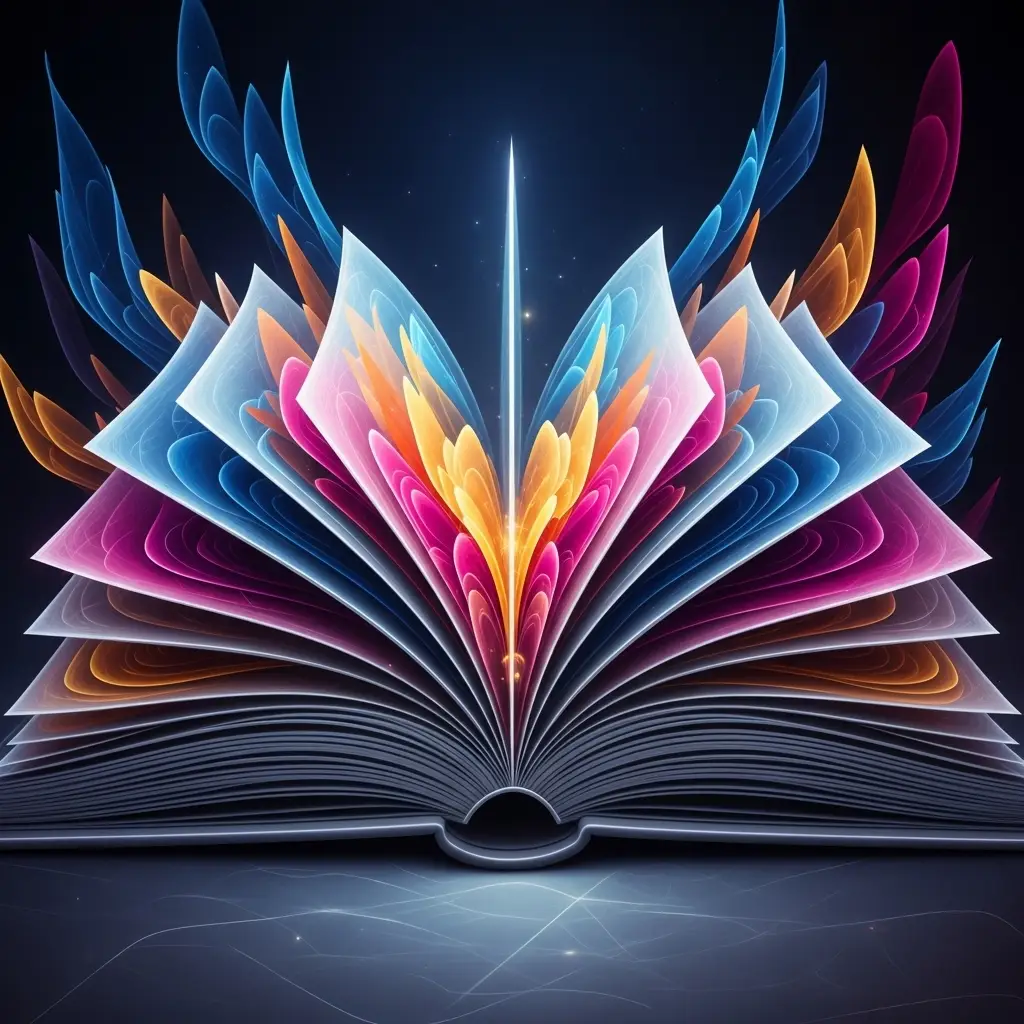
Suggested Books and Resources
I. Foundational Texts
These are the primary sources of Taoist philosophy. Reading them, even just a few passages at a time, is the most direct way to engage with the ideas discussed in the blog post.
- The Complete Works of Chuang Tzu (translated by Burton Watson): This is the definitive source for the philosopher at the heart of the article. Watson's translation is widely celebrated for being both academically rigorous and highly readable. It contains all the famous parables mentioned (the butterfly dream, the useless tree) and hundreds more that will deepen your understanding of transformation, spontaneity, and letting go of the rigid self.
- Tao Te Ching (translated by Stephen Mitchell): The other cornerstone of Taoist thought, attributed to Lao Tzu. The blog post quotes its famous opening line. Mitchell's version is poetic, accessible, and one of the most popular in the English-speaking world, making it a perfect starting point for understanding concepts like the Tao and Wu Wei.
- Tao Te Ching: A Book about the Way and the Power of the Way (translated by Ursula K. Le Guin): For a different flavor, the renowned fantasy and sci-fi author offers a beautiful and deeply personal interpretation. She focuses on the text as a practical and poetic guide to living, which aligns perfectly with the blog's tone.
II. Modern Interpretations and Guides
These books bridge the gap between ancient Chinese wisdom and the challenges of modern life. They are excellent for understanding how to apply these concepts in a practical setting.
- The Tao of Pooh and The Te of Piglet by Benjamin Hoff: Perhaps the most charming and practical introductions to Taoism ever written. Hoff utilizes the beloved characters from Winnie-the-Pooh to explain complex concepts such as Wu Wei (effortless action), Ziran (spontaneity), and the "uncarved block" with simplicity and humor.
- Trying Not to Try: Ancient China, Modern Science, and the Power of Spontaneity by Edward Slingerland: This book is a perfect follow-up to the article's mention of psychobiology. Slingerland, a professor of Asian Studies, explores the concept of Wu Wei through the lens of modern cognitive science and neuroscience, explaining how "effortless action" is a genuine state that can be cultivated and measured.
- Tao: The Watercourse Way by Alan Watts: Alan Watts was a master at translating Eastern philosophy for Western audiences. This was his final book and is considered by many to be his most profound work on Taoism. He eloquently explains the nature of the Tao as a flowing, intelligent process, much like water, making abstract ideas feel intuitive and tangible.
III. Books on Related Concepts
The principles in the blog post connect to broader themes in psychology and philosophy. These books explore those connections.
- Flow: The Psychology of Optimal Experience by Mihaly Csikszentmihalyi: The state of being "in the zone" described in the article is what psychologist Csikszentmihalyi scientifically defined as "flow." This book is the seminal work on the topic, explaining the conditions that allow us to experience deep, effortless enjoyment and concentration—a perfect psychological parallel to Wu Wei and Ziran.
- The Wisdom of Insecurity: A Message for an Age of Anxiety by Alan Watts: While not strictly about Taoism, this book is a masterclass in letting go of control, embracing the present moment, and finding peace in a world of constant change (hua). It directly addresses the anxiety that comes from striving and clinging to expectations.
Online Resources
For ongoing learning and community, these digital resources are invaluable.
- Podcasts:
- The Alan Watts Organization Podcast: Features an extensive archive of Alan Watts's lectures on Taoism, Zen, and the art of living. His voice and clarity are captivating.
- On Being with Krista Tippett: This award-winning podcast explores the big questions of life with theologians, scientists, and poets. Many episodes explore themes of presence, acceptance, and finding meaning beyond mere striving.
- What's This Tao All About?: A straightforward and accessible podcast where the hosts, Dr. Carl Totton and Tod Perry, discuss the Tao Te Ching verse by verse, applying its wisdom to everyday situations.
- YouTube Channels:
- The School of Life: Creates beautifully animated videos that distill the key ideas of major philosophers, including Chuang Tzu and Lao Tzu, into short, understandable lessons.
- Einzelgänger: A channel dedicated to exploring philosophical ideas about solitude, mindfulness, and living a meaningful life, with many videos devoted to the practical wisdom of Taoism.
- Websites & Academic Resources:
- Stanford Encyclopedia of Philosophy: For a deep, scholarly dive, search for their entries on "Zhuangzi" (the pinyin spelling of Chuang Tzu) and "Taoism."
- Learn Religions (Taoism Section): Offers clear, well-written articles that explain the key concepts, figures, and texts of Taoism for a general audience.
SoBrief.com is an AI-powered digital platform that provides concise summaries of an extensive catalog of books, enabling users to grasp a book's key takeaways in about 10 minutes.
Remember to explore these resources with an open mind and trust your intuition to find what resonates most deeply with your journey of rediscovery.
🔗 Affiliate Note: Some links on this page may be affiliate-based, allowing us to earn a small commission at no additional cost to you. Your support helps fuel this creative and healing mission—thank you!
Izalgo produced the images herein with AI-powered software.
Copyright ©️IZALGO, LLC All Rights Reserved

